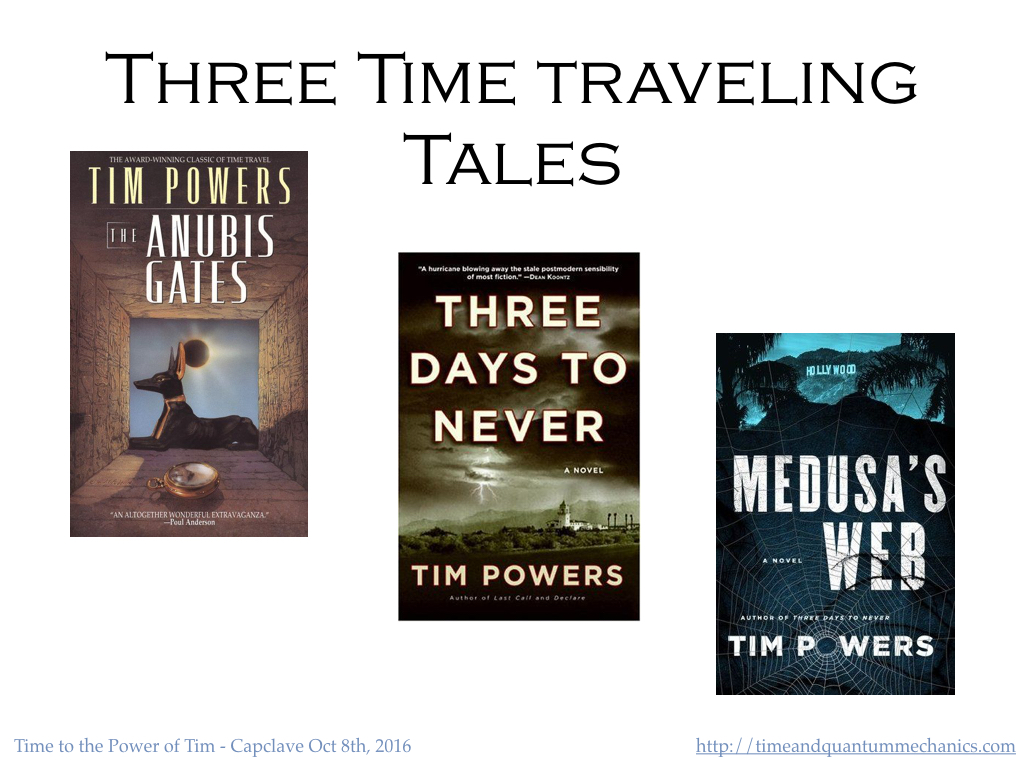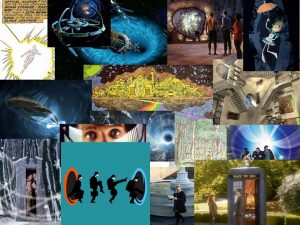Time to the Power of Tim

Three Time Travel Tales by Tim Powers
This year the guest of honor at Capclave was Tim Powers. (Capclave is the Washington DC Science Fiction convention.) Tim is not only the author of many fine science fiction novels, but a very nice guy.
This turned out to be a good thing, as the initial proposal was to have Tim & I appear together and do something physic-y about his novels. I have never done a talk with a live author before (dead authors are no problem, I have that down cold), so I was a bit nervous about the whole thing.
But it worked out well: Tim was very helpful & gracious and when the audience asked him if one of my theories about the time travel in his novel The Anubis Gates was correct he said, essentially, “Now it is.” 🙂
I focused on three of his novels, The Anubis Gates — his first big success (with romantic poets & time-traveling Jackel Gods), Three Days to Never — something like the bastard child of John Le Carre & H. P. Lovecraft, and Medusa’s Web — who can resist the Time Spyders?
One of the distinctive features of Tim Powers working method is that he starts with a place and a time, researches it looking for the curious facts, bizarre details, & strange omissions that point to an unknown but dark reality, then gradually teases out the true story of whatreallyhappened!
“I made it an ironclad rule that I could not change or disregard any of the recorded facts, nor rearrange any days of the calendar – and then I tried to figure out what momentous but unrecorded fact could explain them all.”
So Tim builds his novels from the bottom up. As a result, they tend to differ wildly from each other. Other authors, once they have got a setting that works, tend to reuse it, Tim builds anew each time. No ten volume trilogies here!
And he also works out the timelines of all of his critical characters. At each moment, he knows where each of his on and off stage characters are & what they are up to. His notes on this are a kind of secret history of the secret history!
He has 20 or more novels out, so I focused on just three, all involving time travel. And in each the theory of time travel was radically different! I had a lot of fun linking each up to the corresponding physics and going back & forth about all this with my stage-mate Tim. 🙂
The talk, minus alas, the actual talking, is now up on slideshare. Download if you will & any questions/comments please let me know! thanks!
